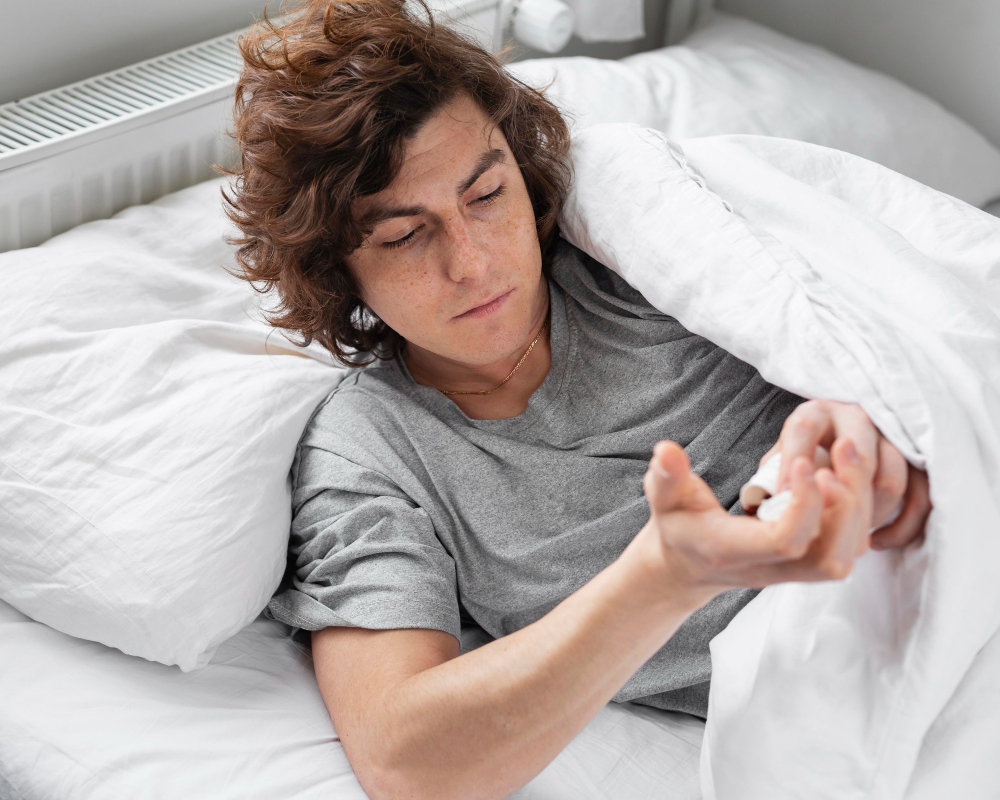Sleep disorders are a common health issue that can significantly impact an individual’s quality of life. From insomnia to sleep apnea and narcolepsy, these disorders disrupt normal sleep patterns and can lead to a range of health problems if left untreated. Fortunately, various treatment options are available to help manage sleep disorders and improve sleep quality. In this comprehensive guide, we’ll explore effective treatments for sleep disorders, with a focus on incorporating the keyword “Artvigil 150” throughout.
Understanding Sleep Disorders:
Before delving into treatments, it’s essential to understand the different types of sleep disorders:
Insomnia:
Characterized by difficulty falling asleep, staying asleep, or experiencing restorative sleep despite adequate opportunity for rest. Insomnia, characterized by difficulty falling asleep or staying asleep, can significantly impact daily functioning and quality of life. It can be caused by various factors such as stress, anxiety, or underlying health conditions. Managing insomnia often involves lifestyle changes, cognitive behavioral therapy, or medication, depending on the severity and underlying causes.
Obstructive Sleep Apnea (OSA):
Involves repeated episodes of upper airway obstruction during sleep, leading to pauses in breathing and fragmented sleep. Obstructive Sleep Apnea (OSA) is a sleep disorder where breathing repeatedly stops and starts during sleep due to blocked airflow. It’s often caused by relaxation of throat muscles, leading to the collapse of the airway. Symptoms include loud snoring, gasping for air during sleep, and daytime fatigue. Treatment options include lifestyle changes, CPAP therapy, or surgery.
Narcolepsy:
A neurological disorder characterized by excessive daytime sleepiness, sudden sleep attacks, cataplexy (sudden loss of muscle tone), and other symptoms. Narcolepsy is a chronic sleep disorder characterized by excessive daytime sleepiness, sudden loss of muscle tone (cataplexy), hallucinations, and sleep paralysis. It disrupts the normal sleep-wake cycle, leading to sudden sleep attacks during the day. Treatment involves medications, lifestyle adjustments, and behavioral strategies to manage symptoms and improve quality of life.
Restless Legs Syndrome (RLS):
Presents as uncomfortable sensations in the legs, often accompanied by an irresistible urge to move them, particularly during periods of rest or sleep. Restless Legs Syndrome (RLS) is a neurological disorder characterized by an irresistible urge to move the legs, often accompanied by uncomfortable sensations. Symptoms typically worsen at rest or during the evening, leading to difficulty falling asleep and disrupted sleep patterns. Treatment may involve lifestyle changes, medication, and relaxation techniques to alleviate symptoms.
Treatment Options for Sleep Disorders:
Lifestyle Modifications:
Establishing a consistent sleep schedule: Going to bed and waking up at the same time every day can help regulate the body’s internal clock and improve sleep quality. Establishing a consistent sleep schedule involves going to bed and waking up at the same time every day, even on weekends. This helps regulate your body’s internal clock and promotes better sleep quality. Aim for 7-9 hours of sleep per night to support overall health and well-being.
Creating a relaxing bedtime routine: Engaging in calming activities before bed, such as reading, taking a warm bath, or practicing relaxation techniques, can signal to the body that it’s time to wind down.
Improving sleep environment: Ensuring the sleep environment is conducive to rest by keeping the room cool, dark, and quiet, and investing in a comfortable mattress and pillows.
Limiting caffeine and alcohol: Avoiding stimulants like caffeine and alcohol close to bedtime can help prevent sleep disturbances.
Cognitive Behavioral Therapy for Insomnia (CBT-I):
CBT-I is a structured, evidence-based therapy designed to address the underlying thoughts and behaviors that contribute to insomnia. It typically involves techniques such as stimulus control, sleep restriction, relaxation training, and cognitive restructuring.
Continuous Positive Airway Pressure (CPAP) Therapy:
CPAP therapy is the primary treatment for obstructive sleep apnea. It involves wearing a mask connected to a machine that delivers pressurized air to keep the airway open during sleep, preventing breathing interruptions and improving sleep quality.
Medications:
Artvigil 150:
Artvigil 150 contains the active ingredient Armodafinil, a wakefulness-promoting agent used to treat excessive daytime sleepiness associated with narcolepsy, OSA, and other sleep disorders. It works by stimulating certain areas of the brain responsible for wakefulness and alertness, helping individuals stay awake and alert during the day.
Other medications:
Depending on the type of sleep disorder and individual needs, healthcare providers may prescribe other medications such as hypnotics for insomnia or medications to manage symptoms of restless legs syndrome.
Alternative Therapies:
Herbal supplements: Certain herbs and supplements, such as valerian root, melatonin, and magnesium, have been studied for their potential to improve sleep quality and manage sleep disorders. Herbal supplements are natural products derive from plants or plant extracts that are use to support health and well-being. They can include vitamins, minerals, botanicals, amino acids, and other substances. These supplements are often use as alternative or complementary treatments for various health conditions, but their efficacy and safety may vary.
Acupuncture: Some individuals find relief from sleep disorders through acupuncture, a traditional Chinese medicine practice involving the insertion of thin needles into specific points on the body to restore balance and promote healing. Acupuncture is a traditional Chinese medicine technique involving the insertion of thin needles into specific points on the body. It is believe to stimulate energy flow and promote healing. Acupuncture is commonly use to alleviate pain, reduce stress, and treat various health conditions, although its effectiveness may vary from person to person.
Yoga and meditation: Mind-body practices like yoga, meditation, and mindfulness can help reduce stress, promote relaxation, and improve sleep quality. Meditation are ancient practices that promote physical, mental, and emotional well-being. Yoga involves physical postures, breathing exercises, and meditation techniques to improve flexibility, strength, and relaxation. Meditation focuses on mindfulness and awareness, helping to reduce stress, enhance concentration, and cultivate inner peace.
Conclusion:
Sleep disorders can have a significant impact on an individual’s health, well-being, and overall quality of life. Fortunately, effective treatments are available to help manage these disorders and improve sleep quality. From lifestyle modifications and cognitive behavioral therapy to medications like Artvigil 150 and alternative therapies, there are various options to explore under the guidance of a healthcare provider. By addressing sleep disorders proactively and implementing appropriate treatment strategies, individuals can experience better sleep and enjoy improved health and vitality.



